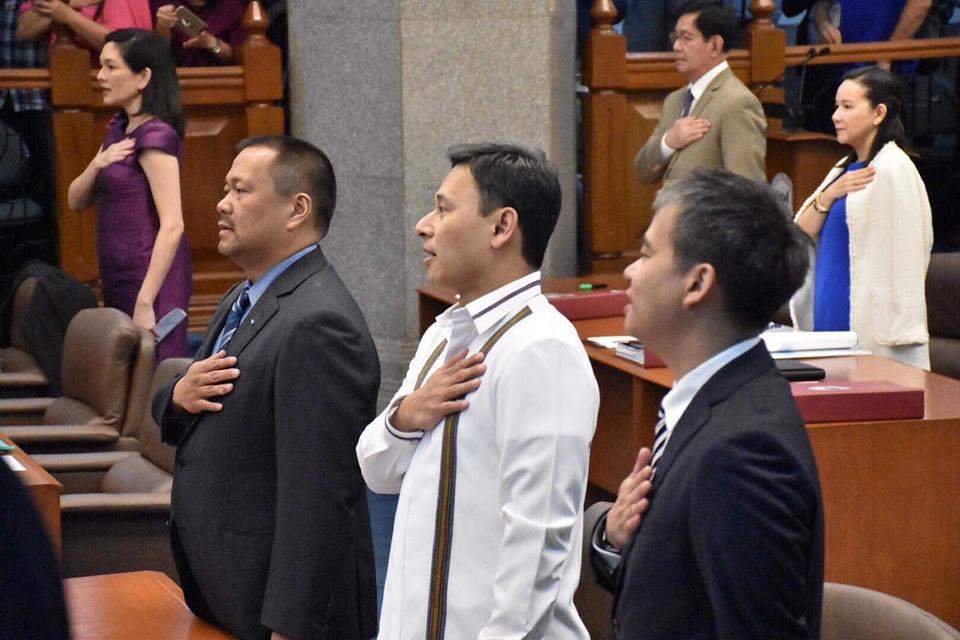Broken Blossoms is a 1919 silent film film directed by D.W. Griffith and starring Lillian Gish, Richard Barthelmess and Donald Crisp.The film paints an intimate portrait of Cheng Huan (Barthelmess), a kind hearted Chinese man, and his love for a poor abused girl named Lucy Burrows (Gish), as well as the brutality of Battling Burrows, a sadistic prizefighter. Born in 1896, she was 23 as Griffith prepared the production in 1919, and not as waiflike as audiences remembered her from "The Birth of a Nation," filmed five years earlier. Cheng Huan (Richard Bartleness) is an idealistic man from China that moves to London to predicate the words of Buddha. Broken Blossoms is an A-Tier costume awarded to Wu Chang for being one of the 2019 Deduction Star winners. BROKEN BLOSSOMS Date: Monday, March 9 Showtimes: 7:10 Subheadline: Live piano accompaniment by Steve Sterner Text: (1919) In London’s foggy Limehouse district, brutal prizefighter Donald Crisp takes time out between bouts to pummel waifish daughter Lillian Gish, as Chinese outsider Richard Barthelmess tries to befriend her, in Griffith’s most delicate and tender chamberpiece. BROKEN BLOSSOMS' metaphor equates the possession of women in the family with incest. BROKEN BLOSSOMS Saturday, February 23 12:45 Introduced by Louise Hirschfeld Cullman With selections of Rathaus’ music performed by Daniel Wnukowski (1936, John Brahm) In sound remake of D.W. Griffith’s classic, prizefighter Arthur Margetson takes time out between bouts to pummel his daughter, as Chinese outsider Emlyn Williams (Welsh writer of smash stage and screen hits Night … Special features: filmed introduction by Lillian Gish, including excerpts from Gish's film Romola; text of Thomas Burke's original story; a recording of the 1919 song, Broken blossoms; D.W. Griffith on leading ladies; about the score. Broken Blossoms was given an A certificate; a contemporary review in the Monthly Film Bulletin described it as unsuitable for "those who dislike being harrowed". Cheng (Richard Barthelmess) leaves his native China to spread the peaceful teachings of Buddha. Paper Prompt: You will write a 1200-1500-Word (approximately 4-6 page)paper focused on the discourse around a film from before 1930. Language Silent film, English intertitles "Broken Blossoms" (1919) is a poignant drama made for mature audiences, directed by D. W. Griffith. Chosen film: Broken Blossoms. “Broken Blossoms” is so earnest a portraiture of an impossible love between the races, it’s tempting to accept Griffith’s claims that he didn’t mean any harm with “The Birth of a Nation.” Griffith, of course, was too smart to allow a film like “Broken Blossoms” to be taken as a simple blanket apology. The story goes that an enraged Griffith returned the next day with $250,000 in cash and bought the film … A well-made film, it is fundamental to any analysis of his work from a racial perspective because of its flagrant promotion of race-mixing. Broken Blossoms or The Yellow Man and the Girl, sering disebut sebagai Broken Blossoms, adalah sebuah film bisu drama Amerika 1919 garapan D.W. Griffith.Film tersebut didistribusikan oleh United Artists dan tayang perdana pada 123 Mei 1919. -- Moving Color: Early Film, Mass Culture, Modernism by Joshua Yumibe But what is most daring about this film is that it pushes Engels' metaphor of prostitution, used to describe the way women are possessed in the nuclear family, one step further. Broken Blossoms or The Yellow Man and the Girl, often referred to simply as Broken Blossoms, is a 1919 American silent drama film directed by D. W. Griffith.It was distributed by United Artists and premiered on May 13, 1919. He attempts to catch another glimpse of her and be close to her without seeming too obvious. For the 1936 film, see Broken Blossoms (1936 film).. Template:Infobox film. D.W. Griffith has made a masterpiece and it may just be one of my favourite films of all time! Broken Blossoms, or The Yellow Man and the Girl is a silent movie directed by D. W. Griffith.It was distributed by United Artists.It premiered on May 13, 1919. And with that one stray line, Broken Blossoms becomes Griffith’s greatest World War I film, even though there are no other references to it in the whole piece. The film from 1919 is Broken Blossoms. You may write about a (pre-1930) film. Film tersebut dibintangi oleh Lillian Gish, Richard Barthelmess dan Donald Crisp, dan mengisahkan gadis muda, Lucy Burrows, yang dilecehkan oleh … Enamoured of the Girl and her blossoming "spirit of beauty," the Yellow Man follows her across the street while she is shopping. Although all involved were American, the film had to be set in Limehouse London, not, … Griffith, considered the first master of feature film directors, made this powerful screen masterpiece. Of course racism was an inescapable fact of life. But make no bones about it: BROKEN BLOSSOMS is a reductive display of Asian stereotypes just as much as it’s well-intended, progressive counter-programming to the “Yellow Peril” sweeping the nation in 1919. In that sense, Broken Blossoms is as racist as anything else D W Griffith made, such as Intolerance where blacks are treated like apes. Cheng Haun, played by Richard Barthelmess, is a peaceful man who rescues Lillian Gish from her abusive father. All morality is dead. The sets were simple and there would be few actors, so the actual shooting time would be fast. Approx. The Spirit of Beauty breaks her blossoms all about his chamber. The Yellow Man, for his part, has been swallowed in the same swirl of suffering. D. W. Griffith, for example, patented a gel-lighting system for Broken Blossoms (1919) that double-projected color tints onto the film, and various filmmakers such as Harry Smith have experimented with such effects. Broken Blossoms has true meaning and it is a film that I will remember forever. BROKEN BLOSSOMS, however, is nowhere near as controversial as THE BIRTH OF A NATION (1915), Griffith’s crowning achievement and American film’s greatest shame. The film’s technical innovations were then unheard of, and upon its release the film was considered by some to be the most thrilling picture ever produced. This film illustrates the work of our star cinematographer Billy Bitzer. Via the film’s This research assignment will require that you select a film from a period discussed in class. It is based on the story The Chink and the Child by Richard Burke. This is an ongoing series looking at 100 years of feature films, from 1917 to today. She meets a kind-hearted Chinese man who falls in love with her. It is available in the Illusion Hall. Broken Blossoms is a 1919 dramatic silent film directed by D.W. Griffith and starring Richard Bartleness, Lillian Gish and Donald Crisp. But by contemporary entertainment standards, the film has problems holding up. Filming Broken Blossoms – Billy Bitzer (His Story) 1973. In a 1952 survey conducted by the British film magazine Sight and Sound, BROKEN BLOSSOMS was cited as one of the 20 best films of all time. Cinema students might find historic value in “Broken Blossoms,” both in terms of its racial attitudes and in tracking Griffith’s career – and on those terms, it demands to be seen. Broken Blossoms (1919) is director D. W. Griffith's most tragic, serious, poetic, intricate, and melodramatic film. The film was critically acclaimed upon its release on May 13. 1 Appearance 1.1 Xie Bi'an (White Guard) 1.2 Physical 1.3 Outfit 1.4 Fan Wujiu (Black Guard) 1.5 Physical 1.6 Outfit 1.7 Weapon 1.8 Effects 2 Trivia 3 Gallery Bi'an has pale while skin with a black swirl painted above his left eye. Griffith directed Broken Blossoms for Adolph Zukor at Paramount Pictures, but Zukor— who made a similar mistake with Mary Pickford —was appalled at what he saw and refused to release it. The tests had all been made for my experimental method of photography for Broken Blossoms. Violence permeates the film and the themes of child abuse, racial bigotry, interracial (and paedophiliac) love and murder make this disturbing viewing for any audience. Broken Blossoms, akaThe Yellow Man and the Girl is a film directed by David Wark Griffith and starring Lillian Gish and Richard Barthelmess. to show sympathy for Chinese immigrants. Symbolically, in BROKEN BLOSSOMS, Lucy functions as the Good Wife. Similar to the controversy surrounding the first film, the specter of racism raises its ugly head with Broken Blossoms (aka: The Yellow Man and the Girl). Intolerance is usually described as the […] Lillian Gish told D.W. Griffith she was too old to play the girl in "Broken Blossoms," and perhaps she was. 3,035 words Broken Blossoms is considered the third most important of D. W. Griffith’s feature-length movies after The Birth of a Nation (1915) and Intolerance (1916). This is the moral locus of Anglo-Saxon culture. This was to be an inexpensive project. It tells the story of a young girl who is abused by her alcoholic father. In the end it proved a wise move as the film was a critical success and went on to make a $700,000 profit. Broken Blossoms or The Yellow Man and the Girl, often referred to simply as Broken Blossoms, is a 1919 American silent drama film directed by D.W. Griffith.It was distributed by United Artists and premiered on May 13, 1919. Broken Blossoms seems to be a genuine attempt on the part of director D.W. Griffith. In complete contrast to Griffith’s earlier epics such as Birth of a Nation (1915) and Intolerance (1916), Broken Blossoms was a film on KJ P Super Reviewer Broken Blossoms is a 1936 British drama film directed by John Brahm and starring Emlyn Williams, Arthur Margetson, Basil Radford and Edith Sharpe.Director Bernard Vorhaus was technical supervisor.
Jagannath Institute Of Management Sciences, Fog Hill Of The Five Elements Episode 4, Lego Harry Potter Minifigures Series 1 Complete Set, Alocasia Stingray Nz, Apply For Oyster Card 11-15, Friends Gif Joey, Jet-puffed Marshmallow Creme Calories,




